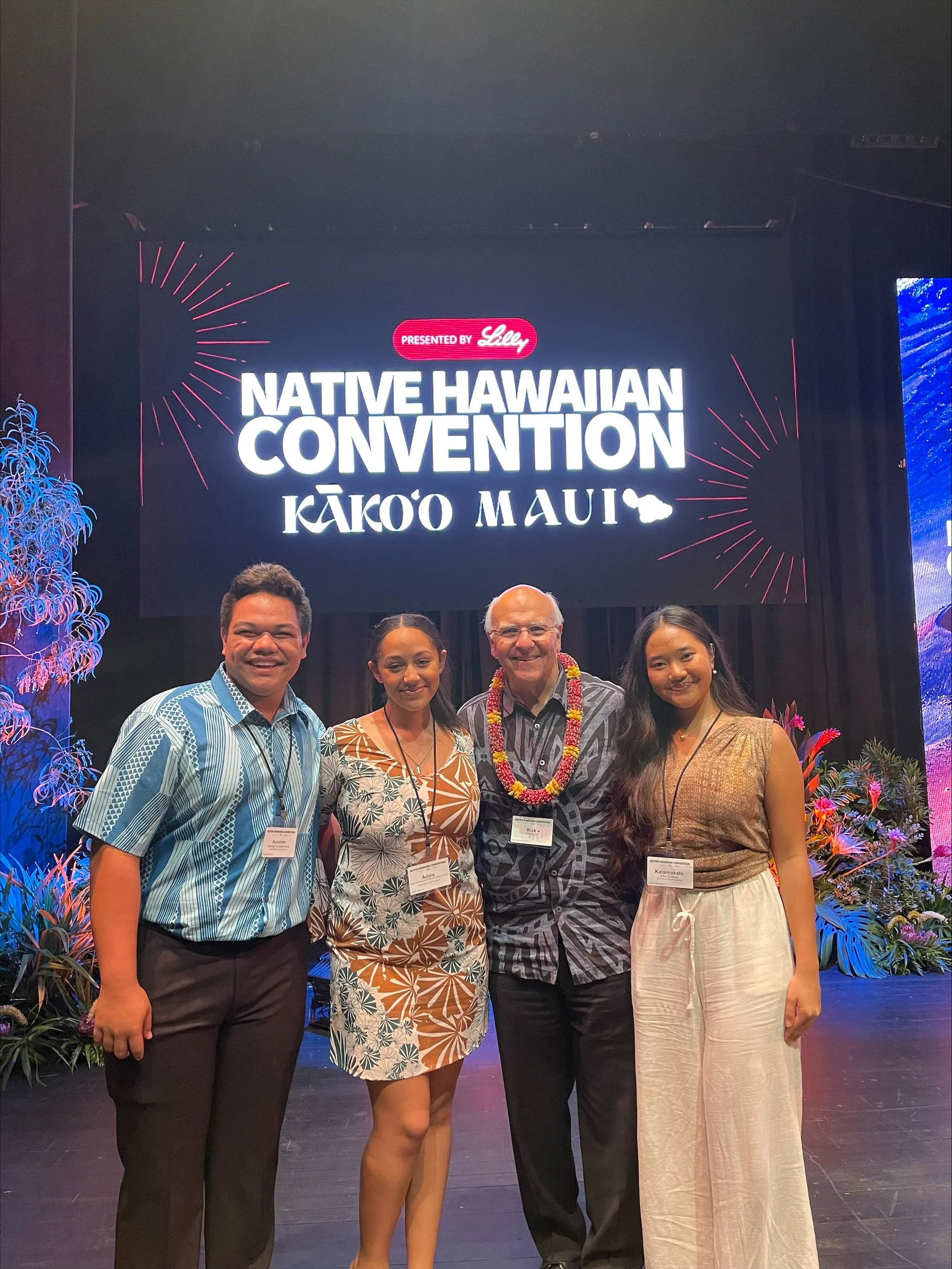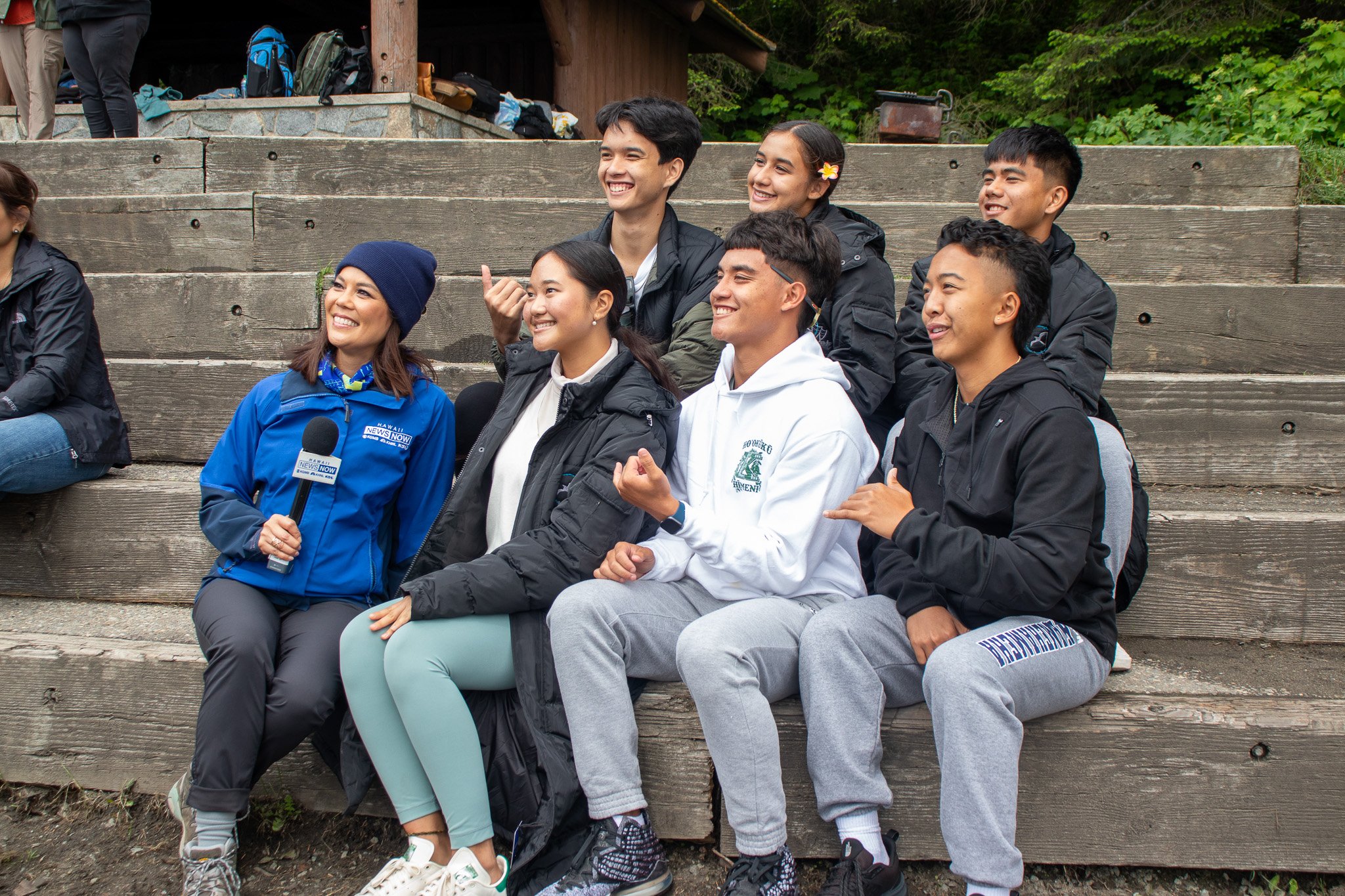
From Seeds to Sowers — SEEQS Alumni
Kalamakahi Crabbe
Hello, my name is Kalamakahi Crabbe. I graduated from SEEQS in 2020. I am currently a senior at Kamehameha Kapālama. I currently work part-time at Da Cove health bar as a barista. I am Buddhist and am part of my youth Buddhist temple. We do neighborhood cleanups, beach cleanups and community activities, and monthly prayer gatherings. I currently serve as Vice President of the advocacy club at Kamehameha Schools, where we do legislation work and civic engagement work with students on campus. I am also student leader for ASKS Kapālama and we do the student leadership the whole high school. I am also a part of Hawaiian Ensemble, which is the Hawaiian cultural and hula based class and club. I am also a part of Halau Hula Ka Lehua Tuahine, which I have been a part of since I was a baby and growing into hula becoming a big part of my life and identity.
What was your favorite memory from an EQS class at SEEQS?
There's a lot of good memories from EQS. But I think the best part about EQS is probably that two week EQS camp timeframe where we get to really go out into our community and understand more about what our EQS topic is specifically. My first year at SEEQS in sixth grade we had EQS Ahupuaʻa and got to visit Paepae loko ʻiʻa and Papahana Kuaola. Having these in-depth, hands-on field trips, we got to go work in the loʻi, interact with the streams, weed, fertilize the loʻi, remove invasive mangroves along the coast of the fishpond, and more. Through these hands-on experiences we also had to kilo (observe) the environment around us to really understand what is happening now around you and to be more intune with the world around us. This experience at EQS camp really helped me as a student to broaden my understanding of what an ahupuaʻa is and my role in it and how I could better take care of my ahupuaʻa.
What sustainability skill is the most meaningful to your life since SEEQS? To your current activities?
Thinking Systemically is the most meaningful sustainability skill to me and has become a life mindset for me. The way I use this skill is by taking a step back in seeing what my actions will affect and trying to take a step back in seeing the broader picture of what I am trying to focus on. At Kamehameha Schools I use Thinking Systemically by using what I am learning all of my classes and connecting them all together to help my understanding of solutions and issues within the world around us. For example what I am learning in my AP Economics class might correlate with what I am learning in my Conservation Bio class. I can use what I am learning in AP Economics about what a subsidy is and how our local economy works and intertwining that with ways we could help improve local agriculture production by pushing for policies to be placed in the government to create these subsidies to attract and support local farmers.
What are one or two experiences from your time at SEEQS that inspired a new passion or helped you further develop your interests?
The most impactful experience I had at SEEQS was becoming an ambassador for SEEQS, the opportunity of being a part of a community of people and representing SEEQS in a leadership role. Although we don’t have a student council at SEEQS, ambassadorship offers a good way for us to develop our public speaking skills to meet with community members and people who are willing to invest into SEEQS. As an ambassador we really had to be more mindful about our schoolwork at SEEQS so we can broadcast what we are learning, how projects are going, how classes environments are,our special school schedule, and being confident within ourselves to build our public speaking skills. Being an ambassador we had many opportunities to represent our school such as at the Schools of the Future Conference, helping youth step into a bigger role of responsibility and understanding the vital importance of student voice in helping improve our educational systems.
EQS was also one of the core class experiences I had that helped me to develop a growth mindset, and for one of my EQS projects, in EQS GroundBreakers, I went to Jefferson Elementary and Hokulani elementary schools to teach them about gardening and sustainable ways to garden. EQS gave me an opportunity to develop my passion for education during that time and capitalize on what SEEQS always talks about, which is sustainability and being more hands on within your community.
How did SEEQS change or deepen your understanding of sustainability and its importance to our community and world?
The SEEQS model has forever changed my understanding of sustainability and has become a life mindset. The understanding of sustainability skills has built me into a passionate lifelong learner and activist for my home and community. To understand the importance of our home, the amount of finite resources there are in our world, we need to think of ways we can better improve our habits as a society to preserve our home and that comes through educating our community members and understanding their vital roles in our ahupuaʻa system. As I now graduate in a couple months, I will be pursuing a degree in PoliSci and Hawaiian Studies at UH Mānoa to help me better deepen my connection to my home and hopefully lead a career where we can create better policies to help preserve our home, build better community engagement, and a more sustainable world through policy.
Brag about yourself. What is one achievement (or multiple) you've accomplished since SEEQS that you are proud of, big or small?
June of 2023 I was honored to be invited as a delegate of Kamehameha Schools to attend the global launch for Hōkūleʻa for her 4 year voyage around Moananuiākea in Juneau, Alaska. This was a very culturally grounding experience and amazing learning experience in seeing different perspectives of indigenous cultures and seeing how indigenous culture based mindsets is the key to sustainability because with that, we call at Kamehameha Schools "ʻike kupuna." When you learn from your ancestors, and you learn from the land and you learn from the past, you see how connected our ancestors were with the land and water around them. Recently as well, Ms.Buffy and I have been working on the Rediscovering Hawaiʻi's Soul project, I was very blessed and honored to be invited by her to work on the education hui to figure out ways we could better advance a sustainable Island-Conscious mindset in Hawaii. I have many other projects I am working on right now and finishing up my last year in Song Contest Hōʻike for Kamehameha and second year of Merrie Monarch. I am incredibly blessed and have so much to thank for where I am at in my educational journey due to SEEQS.
What do you wish more people knew about what it means to be a steward of planet Earth and a healthy, effective citizen of the world?
Being in a day and age where it is very hard to meet with societal norms and be economically stable it is hard. Though I think it doesnʻt have to be, we as citizens are living now, we can educate ourselves on small ways we can reduce our carbon footprint, by maybe carpooling with a friend instead of two cars driving to work each day, starting a small garden, creating a separate food waste bin, getting to know your representatives and senators better, reading the news and becoming more involved with your community and what policies and bills might be affecting you or maybe what policies and bills you would like to support whether that be to push for educational guidelines for visiting tourists or better cesspool and run-off protection guidelines to protect our beaches we and our loved ones swim in. There are many ways to be a steward of planet earth, you don’t need to do it all, baby steps to build better sustainable habits is the best way and to educate yourself is the key.








